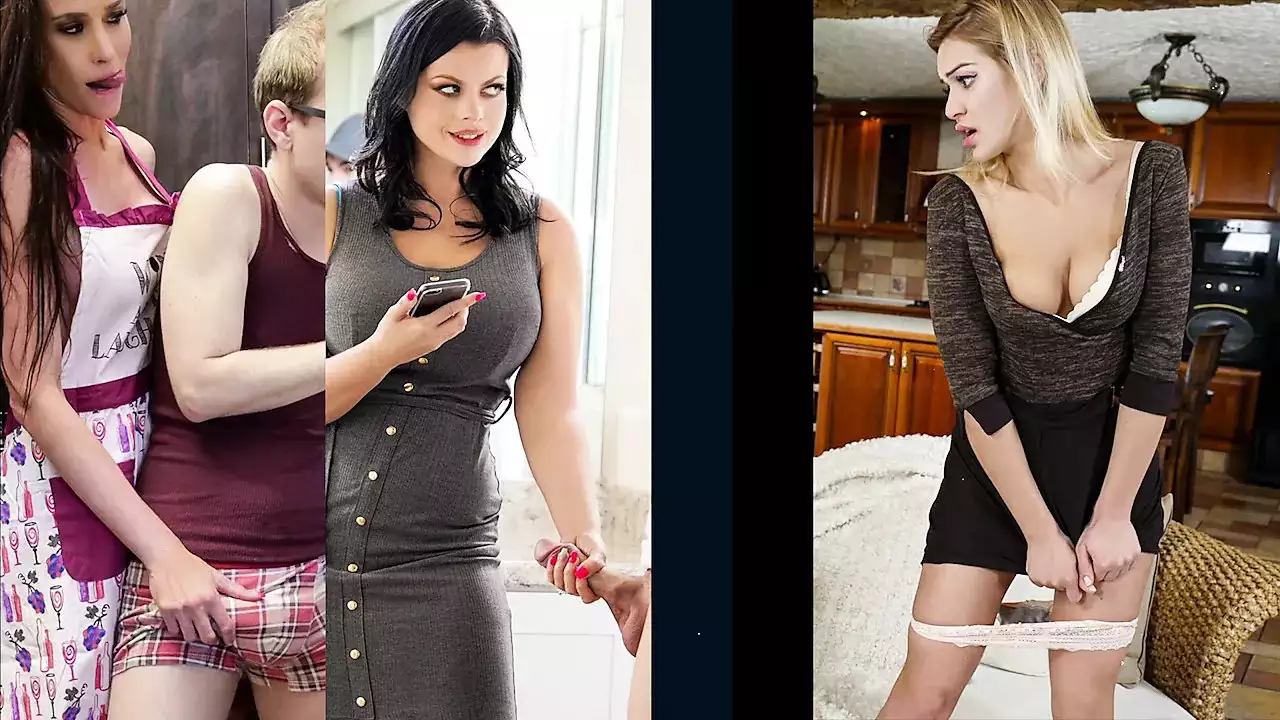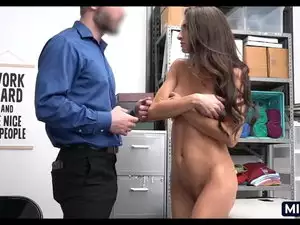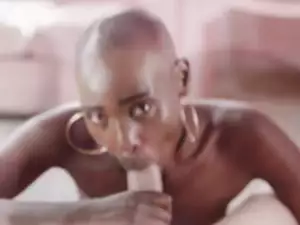Altered Fates Agent Zulo
- 2 years ago
- 49
- 0

 2 years ago
2 years ago
(Author's Note: This story takes place after Altered Fates: Return to Kennet Cove, and contains spoilers for that tale.) ALTERED FATES: THE CULT By BobH (c) 2004 June 7th, 1968. Barry Hudson, gunned the motor on his ancient VW Beetle, urging it on through the choking dust thrown up by its passage over the bumpy dirt track leading to his destination. "C'mon, you Nazi piece of crap," he said through gritted teeth, "just get us over this rise and we're there, I promise." When...
 2 years ago
2 years ago
ALTERED FATES: FLASHFORWARD by BobH (c) 2009 *** (This story is set in the world of the TV show Flashforward.) *** For 17 year-old Lacey Mikulski this was a hard time. She was trying her best to keep her mother's sprits up but her mother wasn't the only one hurting. "I miss her too, you know," she said softly. If her mother heard her she...
 2 years ago
2 years ago
The Legend of the Medallion of Zulo By Ellie of Dauber (c) 2003 A little something I found doing research. From _Gruswald's Encyclopedia of the Occult_ volume 11, Ly-Mor (Isham Gruswald; Oxford, England; Oxford University Press; 1964) MEDALLION OF ZULO: One of a set of an estimated fifty transformative devices created for self-defense by the M'barduu tribe of Central Africa in the ninth century. The expanding Islamic empire of Timbuktu began to encroach on M'barduu...
 3 years ago
3 years ago
Altered Fates: Triptych By BobH (c) 2003 Lucius Duvall checked his reflection and nodded his approval at what he saw. His hair and beard might have long since turned silver grey, giving him an illusion of age and wisdom that, in terms of age at least, was beyond his years, but both were immaculately trimmed, their edges razor-sharp. His suit was tailored to perfection, the trouser creases sharp and straight; his shoes polished to an almost mirror-finish; the carnation in...
 3 years ago
3 years ago
ALTERED FATES/X-FILES: THE SCAM By Bob H. (c) 2003 FBI HEADQUARTERS WASHINGTON, DC. FBI agent Fox Mulder was starting to hate working alone. Hidden away as he was in the windowless room of a back basement accessible only via a corridor lined with dusty storage racks, he often felt both unappreciated and as forgotten as many in the bureau would like the X-files themselves to be. He sometimes went days without seeing another living soul between the time he entered the J. Edgar...
 2 years ago
2 years ago
In the year 2065 the United States is a theocracy in all but name, and at the center of the system sits the Medallion of Zulo.... ALTERED FATES: 2065 A.D. by BobH (C) 2013. (Note: While not essential to your understanding and enjoyment, you will get more out of this story if you first read my tales 'Altered Fates: The Cult', 'The Chapford Wives', and 'Amazons', on which it draws quite considerably. All are available here on FM.) 1: Ray Standing at the altar before...
 3 years ago
3 years ago
Altered Fates: The Things We Do For Friends part 1 of 5 By Morpheus I stood in the school bathroom with my half soapy hands underneath the water faucet, grimacing as I rinsed them off. Then pausing for a second, I looked up and into the mirror that was hung on the wall in front of me. The same familiar 14 year old boy that I always saw looked back at me with a sour expression. His messy brown hair was in need of a cut and his nose still had blood dripping from it. "Shit."...
 4 years ago
4 years ago
If I found the Medallion of Zulo (revised) You've found the Medallion of Zulo. Now what? This story tries to follow "realistically" what I'd do. ***** Since in real life I'm married with kids, I've set this a few years in the future. 60 years old and in good health. Kids grown up and left home. Estranged from my wife. (This is much harder to do if I was still married - that might be the subject of a future story. But in my current situation, with kids in my care, I just...
 2 years ago
2 years ago
Altered Fates: A Complicated Affair By Theunknownauthor Everything you are about to read is true! Every person, place or thing that is mentioned in this account is real, although I am changing the names and not giving any exact locations. I am doing this so that readers won't try to verify the validity of this story on their own. This isn't an easy story for me to tell, but I feel that I need to get it off my chest. For almost a year now I have been reading various accounts...
 3 years ago
3 years ago
ALTERED FATES: THE X-FILE REOPENED by BobH. (c) 2003 For those of you interested in continuity, this story takes place during the first half of the final season of The X- Files. It's a sequel to my story ALTERED FATES: THE X-FILE in the sense of being set after that tale and making reference back to it, but you don't need to have read that one to follow this one. MARRIOTT HOTEL, BALTIMORE, MARYLAND It was her walk as she strode into the main bar that had first...
 3 years ago
3 years ago
As always, any comments or criticism is welcome. Feel free to email me at [email protected]. This story is dedicated to the creator of the Altered Fates Universe, Jennifer Adams and to the cast and crew of the 60's television series The Fugitive, still perhaps the finest drama series made for television. I also want to thank Steve Zink for his editing and general story help. Author's Note: Thank you to the original creators of the Fugitive TV series. Below is the cast, mostly...
 3 years ago
3 years ago
Altered Fates - Lost and Found by cj Permissions: Archival and/or sharing of this story, along with derivitive works - WITHOUT profit from reselling/repackaging, are permitted as long as the story remains complete, unchanged, and correctly attributed to its original author "cj". These permissions are to be included with shared or archived story, and extended to any derivative works. Written permission from the author is required for any "for profit" use. Special Thanks: Thank you,...
 3 years ago
3 years ago
Please send or leave comments so I know whether my time writing this was well spent! Thanks for all comments. _______________________________________________ A Tale Of Hollywood Mystery And Magic, And An Unusual Medallion! An Altered Fates short story by Caleb Jones (Inspired by the Oscar winning actress, Hilary Swank.) Hilary Swank read the headline one more time, still unable to believe last night's events were true. "Swank Wins Oscar" Sun, Mar 26, 2000 05:54 PM PST LOS...
 3 years ago
3 years ago
ALTERED FATES: A CHRISTMAS TALE by BobH (c) 2012 Ed Geraghty sat down heavily on the changing room bench and sighed. He felt every minute of his fifty-six years, and then some. Any positive effect on his health of thirty five years pounding the streets delivering mail had been more than offset by the same number of years spent drinking hard liquor to excess. Not that this was an option open to him any more, given the precarious state of his liver. He was not a bad man, and had...
 3 years ago
3 years ago
Altered Fates Story This story is copyright 1998 by the author. It may be posted and archived on any free site. If you wish to post on a for-pay site, contact the author. Altered Fates: The Hit Man By Ran Dandel I couldn't believe my good fortune. After countless hours following-up various leads, rumors, and downright lies, I reached my goal. I had located the fabled Medallion of Zulo. This prize would ensure my reputation, and insure that I would reach the pinnacle of my...
 5 years ago
5 years ago
Altered Fates: Milkshakes at Midnight by Bashful [email protected] This is the tale of a young married couple, the husband's brother, and how the Medallion of Zulo altered their fates. Frank and Debra Walker had been married for close to three years when Frank's brother Ed moved in. Ed had lived with his parents until they retired and moved to Florida. Ed was frequently out of work and living with his parents had taken the stress out of finding a permanent job. Now Ed was...
 3 years ago
3 years ago
I originally had no intention of making this an Altered Fates story. However, after my first two drafts turned out horrible, I decided to try a different angle with it. This is what resulted. Altered Fates: Auntie Em By Morpheus Corey winced as his foot went into the puddle of water, muttering "Damn" to himself. He was already completely soaked through from the heavy rain, which gave no sign of letting up. Shivering in his wet clothes, Corey really wished that he hadn't ...
 4 years ago
4 years ago
I've had this story in mind for quite awhile, but the first time I started writing it, Eric came out with a very similar Altered Fates story called The Baby-sitter Caper first. Because of that I put this one on hold for awhile. Well here it finally is. I know that the ending leaves a lot that could be done afterwards, but I left off where I was on purpose. Perhaps I'll do a sequel, or perhaps I'll just leave the rest to the readers imagination. Altered Fates: Babysitting By...
 2 years ago
2 years ago
Hello I've submitted stories before as Lisa, Alyssa's Magic, Strings, and the Gift of Dreams here is a story that has been on Jennifer's site for a long time and I'm finally submitting it here, It is an Altered Fates Story. Altered Fates: Chris and Marissa By Rena Marissa Moore was having a bad week. She had just been laid off from her job as a receptionist for a small software company. It wasn't a great job, but it paid the bills. The company had been purchased by a slightly...
 3 years ago
3 years ago
If anyone wishes to archive this story they may do so on the conditions that it is provided free and that the story contents are not altered. Altered Fates: Prom Date By Morpheus Furious, Josh wanted to lash out, to kick the chair next to him or do something that would let out his anger. Instead he forced himself to stand still, glaring at his Mom. Here he was 15 years old, and still treated like a little kid. It just made him furious. He had been planning on going to a party...
 3 years ago
3 years ago
"Altered Fates: What are friends for?" - By Flyover State. Synopsis: Tiffany and Ryan are best friends. As young kids, the two girls meet Tyler, a kid new to the neighborhood. Now in high school, Tiffany and Tyler are dating. Ryan's love for Tiffany has grown more than sisterly, and she knows it won't be reciprocated. Follow Tyler, as Ryan brings her plan to fruition, and the aftermath of his choices thereafter. Multiple changes occur (other characters) age regression,...
 4 years ago
4 years ago
Authors note: This story was inspired by Femur's Lovingly Modified Romance Comic covers, specifically af054.jpg. I wrote it when femur asked me for a story. This was the one I originally intended to start with but, for various reasons, I ended up writing other stories first. ALTERED FATES: G.I.BLUES By BobH. (c) 2003 For John Geddes this five day furlough could not have come soon enough. Six days from now he and his unit would be shipping out to become part of a...
 4 years ago
4 years ago
Altered Fates : What Friends Are For! By Paul1954 Clare looked across at her children, Ginny aged 7 and Jack aged 10, and sighed. She returned her attentions to the mirror in the hallway and finished touching up her lipstick. It was a typical Saturday morning at the Walter's home with Clare's husband Des sleeping off the results of a Friday night drinking spree spent with his co-workers and her children glued to the television watching the trash that passes for children's TV...
 4 years ago
4 years ago
Altered Fates: The After-Effect Written by Liam Slade Published originally on Fictionmania, to be reprinted with author's permission. http://www.liamslade.com *** For starters, let me tell you that I never felt different. It's an old clich? that someone in my scenario might have grown up differently than the other boys, but the truth is I loved playing G.I. Joe and Cowboys and Indians. I couldn't have cared less for Barbie dolls and easy-bake ovens. I liked baseball a l...
 3 years ago
3 years ago
(Thanks to SteveZ for his Selfless Editing. The Altered Fate62 on Femur's great site inspired this story.) THIS IS AN EXPERIMENTAL STORY. After each scene, your imagination will be needed to fill in the blanks. Altered Fates: Scenes From a Marriage By Eric 1. The Discovery Janet was worried. Jack was being a jerk, and refusing to even set a date for their marriage; she had already bought her gown and EVERYTHING! God, how she hated it when he patronized her. She felt like...
 4 years ago
4 years ago
Authors note: This is another story whose initial inspiration was a situation depicted on one of femur's Lovingly Modified Romance Comic covers, specifically af017.jpg. ALTERED FATES: A QUICK STUDY by BobH. (c) 2003 Sitting in his large, elegantly-furnished CEO's office, Eric Peyton Wayne gazed sadly at the framed photograph in his hands. It showed him and Tommy Clark in happier times. They had been fourteen and indestructible when the picture was taken, during that long,...
 3 years ago
3 years ago
ALTERED FATES: TEMPEST by BobH (c) 2004 Authors note: This story was inspired in part by femur's Lovingly Modified Romance Comic covers, specifically af011.jpg. These can be seen at tgcomics.com 1.Janice: "'Loose' for 'lose'," said Gina Carter, dark eyes flashing, "'breath' when it should be 'breathe', and not knowing the difference between 'affect' and 'effect. Not to mention 'adverse' and 'averse'. I swear they've given up teaching basic English in American...
 2 years ago
2 years ago
Altered Fates - The Mistakes of Others By KathyB Learn from the mistakes of others; life is too short to make them all yourself. Chapter #1 Jim Collins was nothing if not methodical. An engineer by trade and obsessive compulsive by habit, he carefully planned his day's activities so as to minimize wasted effort. He rose routinely at 5:00 am, tended to personal hygiene as the situation warranted, poured a cup of hot black coffee from his...
 3 years ago
3 years ago
This story is intended for the entertainment of adults only. Copyright (C) 1999 by Maryann. All rights reserved. Permission Is hereby granted for non-commercial use of this complete and unaltered text. Electronic storage of unaltered copies for personal use is also permitted. Any other use of this text is a violation of copyright. No hardcopies may be made without written permission from the author. Altered Fates- The girl with the Rose Colored Tattoo. By: Maryann ...
 2 years ago
2 years ago
ALTERED FATES: HOLLYWOOD AGENT Chapter 1: Laura Jenson was tired. At least she acted as if she was tired, and those who knew her well knew that even though she was the star of over ten highly profitable movies over the last five years, that Laura couldn't act her way out of a paper bag. Laura thanked her lucky stars everyday that the director's and the film editor she chose to work with, knew her acting faults and were only too glad to cover them up and make a ton of money from...
 2 years ago
2 years ago
Altered Fates: A Study In Childhood - By Innocent Guilt Hi, my name is Jeffery Smith. If you stumbled onto this little story of my life then I hope it helps save you from the fate I am in now. Well, lets go back to where it all started. It was my first days of college. I was a freshman at Undeclared Medical College. I was head strong, naive, stupid, and thought I could take on the world. I had just finished high school as top of my class with some off the wall theories in the...
 4 years ago
4 years ago
Altered Fates DISGUISED FOR LIFE by Jennifer Adams ©Jennifer Adams Bob had everything he and his children would need packed into the trunk of his car when he went to pick them up for the week-end. He had planned it all out. He would pick them up from Shelly like it was going to be a normal week-end visit. Then instead of taking them to his rented house they would just go west and start over, just the three of them. It was a desperate act, he knew, and if he were caught...
 2 years ago
2 years ago
Altered Fates: Glueck und Glas, Teil 1 by T:M in 2005 Achtung: In dieser Geschichte gibt es Szenen mit expliziten sexuellen Handlungen. Au?erdem wird geflucht, und das nicht selten! ***Prolog*** Eigentlich war alles wie immer: Ein typischer Samstag Vormittag. Das "Venice", ein kleines Eiscafe, welches nach 22.00 Uhr auch eine ganz passable Szenebar abgab lag am Rande der malerischen Altstadt, direkt neben der Rossmann-Br?cke, dem Markenzeichen des Ortes, welche ?ber einem ...
 2 years ago
2 years ago
Following my debut story last week (Lord's Prayer), along with the feedback I've received (thanks Eric Bloodstone, Jennifer Adams, Mindy Rich and all the others) I have gotten the bug ! This is a spin-off story from Lord's Prayer which, I hope, wraps up this episode. If found that, although this started out at an even pace, it turned fairly dark about half way through as the story took on a life of it's own and reflected the mood I was in at the time. Hope that some still enjoy this...
 4 years ago
4 years ago
As always excessive praise is always welcome No copyright infringement intended. The rights belong to CBS and Childhood Sweethearts. CJ and I are just having fun not meaning any harm. Altered Fates: Domestic Tranquility with The Nanny By Eric and Caleb Jones Fran Fine's annoyingly nasal voice hammered at Maxwell's ears like a sledgehammer. She was sexy and lovable but oh, that voice of hers. Perhaps he should insist she go to a voice training class, but every time he hinted at...
 3 years ago
3 years ago
ALTERED FATES Sisters Revenge by Kathryn Nelson Copyright - Kathryn Nelson, 2001 Kyle Emerson was 18 and had just graduated from high school. Finally, he was free from those teachers he thought were weird and all the studying his mother made him do. He was registered to go to a local community college in the fall but he now had the summer off to enjoy himself. His mother had saved up the money for him to go to college but he needed to pay for his own car and all other...
 3 years ago
3 years ago
(Author's Note: For anyone concerned with continuity, I figure this story occurs somewhere around the middle of the run of the X-FILES.) ALTERED FATES: THE X-FILE By BobH (c) 2002 FBI TRAINING FACILITY, QUANTICO, VIRGINIA. With her usual methodical efficiency, FBI agent Dr. Dana Scully had carried out a full post mortem examination of the two bodies that had been shipped to the morgue here at Quantico. Her partner, FBI agent Fox Mulder, had asked her to do the autopsies so he...
 3 years ago
3 years ago
Altered Fates - The Book Dealer by KathyB Paul Mortonson was from Palo Alto. He was born there. He was raised there. He went to school there, college too. He met a girl from there, got married there and settled there. He even worked there. Paul owned and operated a small, independent book store. His specialty, and his passion, was rare and collectable books. Palo Alto, for those who do not know, is a community of some 60,000 people. It sits in the northwest corner of...
 2 years ago
2 years ago
Altered Fates - The Medallion comes to Fairview Part III. Hide and Seek Previously: In Part I - Justin Donovan and his Dad moved back to Fairview after Justin's Dad (Sean) retired from the United States Marine Corps. Justin began his senior year at Fairview and quickly fell for Laura. Laura's friend Becky in an attempt to make her boyfriend jealous went out with Todd, the school drug dealer, and was raped. Knowing Justin's ability as a fighter Becky got Laura to help her in a...
 3 years ago
3 years ago
The Medallion of Zulo was a powerful instrument of fate, but sometimes the fate it brought was death. ALTERED FATES: THE DAUGHTER by BobH (c) 2014 I woke screaming, lurching upright in bed as that scream subsided into great, wrenching sobs. It was the sounds again, those terrible cracking and snapping sounds I couldn't escape. The bedroom door burst open then Carol was there, taking my tiny body in her arms, rocking me back and forth, my head on her breasts,...
 3 years ago
3 years ago
Altered Fates: Stabbed In The Back By: Regina Lawson I may have been selfish; in fact, I was selfish, I knew it. I wanted so much to make some sort of difference in the world that I overrode my wife?s objections and took the diplomatic position offered to me anyhow. I was to take up a minor position at our embassy in Panama which was responsible for American tourism, but that put me in touch with intelligence assets in the Central American region. My name is Stuart Barnes...
 2 years ago
2 years ago
Altered Fates: Chimera, Part 1 By Elliot Reid I stood at the window, peering out into the cold morning light. I waited a full five minutes, face squashed against the glass, feeling my nose get uncomfortably cool. The trees in the avenue were in full leaf and I couldn't see far down the street, however much I squinted. I saw a vehicle move. Was that my parents' SUV gliding back along the road? Nope, false alarm. I was paranoid my folks would return. It was known to happen. Mom...
 2 years ago
2 years ago
Altered Fates: Chimera, Part 3 By Elliot Reid I slept fitfully that night, back at home in my own bed. I was exhausted from my lovemaking with Simone, who since her transformation had almost limitless demand for sex inside Ayesha's lithe body. But even though I felt sucked dry I was jazzed by the experience. I was on a high. It was late when I'd left Simone. My parents would raise Cain if I stayed out too long. But before I walked out the door we talked over Simone's plan to turn...
 2 years ago
2 years ago
Altered Fates: Glueck und Glas, Teil 2 by T:M in 2006 Achtung: In dieser Geschichte gibt es Szenen mit expliziten sexuellen Handlungen. Ausserdem wird geflucht, und das nicht selten! Und noch ein kleiner Hinweis: Die ersten zwei Abschnitte sind bei allen Teilen der "Gl?ck und Glas" Geschichten identisch, da die Geschichten das Geschehen aus verschieden Perspektiven beschreiben und nicht aufeinander aufbauen. So kann jeder Leser, ganz gleich mit welcher Geschichte er auch...
 4 years ago
4 years ago
Altered Fates: Chimera, Part 5 By Elliot Reid Jase and I were both victims of the Medallion of Zulo; something we discovered the first night we slept together. We became close after that. We weren't in love or anything, but I welcomed Jase's support, his understanding. He knew what it was like to have your life turned upside down by a change of sex, of identity. Jase looked in the mirror each morning and saw a borrowed face. He'd been through the struggle of reinventing...
 4 years ago
4 years ago
Altered Fates: Dennis (I know, its not the greatest name, but it works) By Morpheus ([email protected]) Walking home from work, I happened to look down, and saw a small brass colored medallion sitting in the gutter. Curiously, I pulled it out and held it up examining it. When I'd seen it, I'd hoped that it might be worth something, but as I looked at it, I realized that it was only a cheap piece of costume jewelry. Probably for kids or something. I noticed that there was a...
 4 years ago
4 years ago
When I wrote Auntie Em, I had no intention of writing a sequel to it. However, after I finished it I started thinking about a few other ideas I had for the main characters and decided to use them as well. Unfortunately, or fortunately depending on how you look at it, this one turned out quite a bit longer than I'd anticipated. For those of you who haven't read Auntie Em first, I suggest that you do before reading this. Altered Fates: Auntie Em II By Morpheus Emily felt bored....
 2 years ago
2 years ago
Altered Fates: A Promise Kept By Jennifer Adams "Mike! Where have you been?" Connie asked. It was more of a demand rather than a question. She had been waiting and wondering where her husband had been for several hours. He wasn't normally a man who left and didn't come home. At least not until SHE came back to town. SHE was Mike's childhood friend. They had been neighbors growing up and played together all the time. Her name was Dana. "I'm sorry dear. I was over at Dana's...
 2 years ago
2 years ago
Lyle's Story by Grendel There are two sides to every story. Most of us would prefer to see the world in black and white, but the decisions we make are never as clear- cut as that. I know that I've made some enemies in my life, and perhaps with hindsight some of the pain that I've caused could have been avoided, but I've never deliberately acted with malice. I've just made some bad choices. I grew up in the shadow of my elder brother, Ken. He was the Golden Child, the...
 3 years ago
3 years ago
Altered Fates: Body Switch By: Wayne Halderman Edited by: Heather Hi. I'm really William James Campbell. Or, should I say, I used to be. The truth is, I had my body stolen from me. I was 25 years old, 6 feet 6 inches tall and weighed 285 pounds. I had an athletic build, blonde hair and brown eyes. It all started with me seeing a picture of a girl in a pink dress and saying to myself, "She used to be a male Olympic swimmer before her body got stolen. Now she's a prissy...
 3 years ago
3 years ago
Altered Fates: My Best Friend's Girl By Jennifer Adams I remember what I was doing when I received that fateful call. I was having sex on the beach with Jennifer Aniston. She was hot as ever and all over me. Just as we reached our mutual peak she opened her mouth to speak, but all I heard was a telephone ring. I suddenly became confused and then she disappeared. I mean like one moment she was there and the next pop, but I kept hearing this phone ringing. Then everything else began...
 3 years ago
3 years ago
Altered Fates: A Favor for Anna, Part II "Temptation" Author note: I'd just like to say thank you to Eric for beta reading and offering suggestions on this story, you've undoubtedly made it better! - Cheers Zapper ++++ Chapter 1 "Curiosity killed, ......swapped the cat" ++++ It was a cold Friday afternoon in February as Tom looked out his living room window at the snow covered backyard. The scene showed several trees coated in ice and a...
 2 years ago
2 years ago
Altered Fates: Fait Accompli by Raven Mark approached his dad nervously. He had only passed his driver's examination last week, but his entire existence now revolved around whether he could use his father's car tonight. It wasn't every day that a guy had a chance to take Cindy Sue Reilly out on a date. She was quite simply the hottest girl in his class . . . .if not the entire school. Mark had to do this right. If he could pick her up in a car, he would be deemed worthy of her...
 3 years ago
3 years ago
CAUTION: This story has what might be labeled Incest as a small girl is transformed into her Mother and has sex with her Father. If this subject matter is revolting to you please read no further. The TG part in this story is fairly small, but I thought some of you would enjoy it anyway. Warning, this story contains adult material, and if you are under 18, or offended by such material, please read no further. Altered Fates: Playing Dress up By Morpheus...
 3 years ago
3 years ago
Altered Fates: Danny Boy By Morpheus The clock quietly ticked, the only sound in the room. Danny Mason looked around the table, seeing his relatives, all waiting quietly as the lawyer gathered his materials, getting ready to read the will. The others didn't want Danny to be there, thinking that he was too young at 15 for this, but he was closer than any of them to his Uncle Benny. Danny almost smiled, fondly remembering Uncle Benny. He had always been a bit eccentric,...
 2 years ago
2 years ago
If anyone wishes to archive this story, please contact me. Altered Fates: Faith By Morpheus It was late in the afternoon, and Father Christopher wiped the sweat from his brow, and straightened his collar. Opening his bible, he started reading aloud to the several homeless people standing around. Some of them listened intently, while others ignored him, focusing instead on the blankets and food that he'd brought. As he finished, Father Christopher closed his bible, feeling...
 2 years ago
2 years ago
After Faith, I decided to do something more with the medallion, showing how it passes from one person to another, in 3 short tales. I was in a rather dark mood as I wrote this one, so you've been warned. If anyone else wishes to archive this, please contact me. Altered Fates: Just Passing Through By Morpheus Mother Catherine looked down her elderly nose towards the dirty old man sitting on the ground in front of her. Disgusting, she thought, that any human would let themselves...
 3 years ago
3 years ago
Altered Fates "... to heal a soul " by Olivia Evans James watched Karen Short, the cute blonde who lived next door, through her bedroom window. He had been climbing the tree next to her window to retrieve a crashed kite belonging to the young kid across the street when he noticed the young teenager standing in front of her dresser. What on earth was she doing? James thought. Karen slipped a medallion over her head. Reaching into a plastic bag she pulled a bra out and...